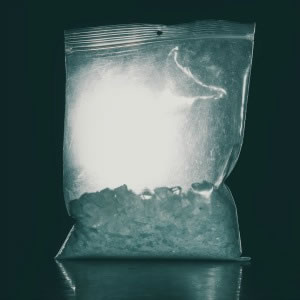Coke, dope, ice: Does the profession have a drug problem?
Every time a senior lawyer with a drug addiction is exposed there is a frenzy of media activity, but the underlying issue of drug abuse in the profession has not been adequately addressed, according to Dr Robert Fisher.

“I don't think enough has been done,” said Dr Fisher, the head of the Department of Psychiatry, St Vincent's Clinic and Private Hospital. “That is not to say that nothing has been done. This is a problem that the legal profession in Australia recognises but finds difficult to manage.”
Drug abuse in the profession was a hot topic last week, after a former DPP lawyer pleaded guilty to cocaine possession.
Dr Fisher, a long-time adviser to the Law Society and the Bar Association in NSW and a director of the Tristan Jepson Memorial Foundation, recommended that the legal profession consider greater education and a clear statement of professional standards in relation to drug and alcohol use, as well as a rehabilitation program, similar to that provided by the Medical Council of NSW.
The Law Council of Australia (LCA) responded to these concerns by pointing to the various mental health initiatives of law societies and bar associations.
“By getting to the root of the problem, [the profession is] proactively dealing with the downstream implications of mental health issues, including substance abuse,” said LCA executive member Morry Bailes.
The Law Institute of Victoria (LIV) encourages drug users in the profession to seek help early and urges employers to "take positive responsibility for maintaining a healthy workplace culture", according to president Katie Miller.
She said the LIV and the Victorian Bar established the Wellbeing and the Law Foundation in 2013 to support safe working environments for lawyers.
Rumours versus numbers
There have always been whispers within the profession of social cocaine use among top-end lawyers, but good data is scarce.
“The issue is that there is a certain level of prevalence expected in the general population,” explained Dr Fisher.
In a recent survey of more than 1,000 lawyers by UNSW, only seven per cent reported using drugs intermittently (once a month or less). About three per cent reported using drugs regularly (several times a month or more).
In the study, marijuana was the most frequently used drug (37 per cent); painkillers were second (16 per cent). Ecstasy, tranquillisers, anti-depressants were also mentioned.
Surveys such as these have obvious flaws, in that drug users are often paranoid and do not always know which drugs they have taken, according to Kirk Hardy, the CEO of the Drug Detection Agency (TDDA).
TDDA offers pre-employment drug testing for law firms in Australia and New Zealand. By analysing strands of hair, the company can detect whether potential employees have a drug habit.
“We can go back over a year of usage depending on the length of the hair,” he said. “Usually it's three to six months.”
The test will only pick up sustained substance abuse and not one-off usage.
Mr Hardy said there has been a marked uptick in interest in drug screening by law firms over the past 18 months.
TDDA does around 200 pre-employment tests per month and around 20 per month for professional services, including law firms.
These tests have a 32.6 per cent positive rate for illegal drugs such as marijuana (45%), ice (39%), cocaine (1%), as well as prescription medication (15%).
The majority of these positives are from court-ordered hair tests but there has been a concerning rise in the number of pre-employment positives, according to Mr Hardy.
Dr Fisher said the American Bar Association has seriously considered the issue of drug abuse, unlike their Australian counterpart.
Among their “daunting statistics”, the American Bar Association estimates that 18 to 20 per cent of lawyers abuse drugs or alcohol compared to eight to 10 per cent of the population.
A paper by the Legal Profession Assistance Conference states that 90 per cent of serious disciplinary matters involve alcohol abuse. The same holds true for drug addiction, according to the paper.
Heads in the sand
The profession has a tendency to tip-toe around the issue of substance abuse, according to Dr Fisher.
“It is really sticking the head in the sand,” he said. “The fact is, it is happening."
When the issue of drug abuse exploded in 2007, following the death of Melbourne barrister Peter Hayes QC from a cocaine and heroin overdose, the Victorian Bar balked at the suggestion that such habits were widespread.
At the time, Peter Faris QC caused ripples in the Victorian Bar by stating publicly that drug abuse was rife in the profession. The Bar described these comments as “nonsense” and prematurely dropped an investigation into drug use in 2008.
The profession is under media scrutiny again after last week’s developments in the case of Lisa Munro, a former lawyer at the DPP, who was caught with a bag containing 0.65 grams of cocaine in Potts Point on July 10.
Earlier this year, the Director of Public Prosecutions, Lloyd Babb SC, requested that the police investigate a drug culture emerging in an elite team of lawyers called Group 6, where Ms Munro worked.
No evidence of drug use was uncovered. Ms Munro was arrested in an unrelated operation and the previous investigation has now ended.
Ms Munro’s is one of a number of high-profile drug cases involving lawyers in the past 18 months.
Nicholas Gouliaditis, a senior executive lawyer at Australian Government Solicitor, was charged with drug dealing in August last year.
Brisbane lawyer Nigel Francis Munt was also convicted of trafficking methylamphetamine in April.
Like this story? Subscribe to our free newsletter and receive Lawyers Weekly every day straight to your inbox.